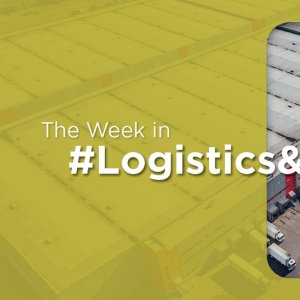Reliable Flying in Uncertain Times

STORY INLINE POST
Q: How has Lufthansa altered its operations in Mexico to address changes in demand?
A: Lufthansa has reduced its operations in Mexico in terms of flights and routes. Previously, we had several flights from Mexico City and Cancun to several destinations in the EU, which we had to pause due to the pandemic. We have now restarted some flights, with five weekly flights between Mexico City and Frankfurt. Our flows are still limited as there are some restrictions to enter several countries for most residents in the Americas, with the exception of Canada and Uruguay.
Decisions to open borders to other countries should be taken following scientific data so once they are open, they can remain so. Governments and companies are facing significant uncertainty at this time, which is fully understandable. It will be hard to determine what the future will look like until more borders are open, especially in the Schengen Area. But we believe it will take a few years before traffic returns to pre-pandemic levels.
Q: How have cargo operations in the country been altered by the outbreak?
A: Our cargo operations have not been as affected as passenger flights. Our cargo traffic still shows positive results in the country and we continue to operate several cargo flights in Mexico through Lufthansa Cargo. We are grateful to the Mexican businesses that have continued to trust Lufthansa Cargo for the delivery of their products.
Q: How is Lufthansa protecting passenger’s health amid the COVID-19 pandemic?
A: Lufthansa has implemented several measures on board and at airports to guarantee passenger safety. That being said, the risk of catching COVID-19 on a plane is minimal due to the way the air circulates and is filtered. Our aircraft are equipped with HEPA air filters, which eliminate 99,98 percent of all bacteria and virus in the air, which is also filtered out and replenished every three to four minutes. Moreover, aircraft have a vertical air flow, from top to bottom, similar to a surgery room, which also prevents crossed air flows within the cabin. Because of this, we can guarantee that the air we breathe in an airplane is better than the air we breathe on the ground.
We are making sure our passengers are fully aware that we care about their health and safety at all times during their flight and on land. This required the implementation of a series of protocols designed to minimize contact among passengers and staff, for instance, through the use of online platforms. Other measures include the use of face masks at all times during the flight and the constant, systematic sanitation of all surfaces in the cabin. It was also necessary to adapt some on-board services to minimize exposure risks and ensure that the travel experience remains as safe and as comfortable as before the outbreak. Some of these changes are temporary and will be reviewed and altered as necessary. The use of face masks is now mandatory for all passengers at all times during flight. Additionally, we have eliminated open buffets at night and we change all glasses when customers ask for drink refills. We also give our passengers sanitary towels when they board the airplane, among many other measures.
Q: How did Lufthansa use technology to improve the passenger experience?
A: Prior to the pandemic, Lufthansa was strongly investing in renewing its fleet to offer passengers newer airplanes, which are quieter, more comfortable and better for the environment thanks to their lower noise levels and reduced CO2 emissions, partly the result of more efficient use of jet fuel. We were also one of the first airlines in the world to offer broadband internet on board our airplanes, because our passengers find it extremely important to remain connected at all times. We also developed an app that allows our passengers to check in online and document baggage and have invested in improving our passengers’ online experience when booking and paying for their flights or reporting any incident.
Our policy is to treat each client as a “Gast” (German for guest) not as a passenger, as we want them to feel they are our guests during the 12 hours they will be flying. While all airlines transport passengers from A to B, not all of them offer a complete experience. Lufthansa offers a complete travel experience through many careful considerations. For instance, our First and Business classes do not have food trolleys because this is not the experience a guest would find at a restaurant, so they will not find it on our airplanes, as we are Europe’s only 5-star airline. Our First class offers privacy screens to sleep in a kind or semi suite, one could say. While most airlines with a business class have a standardized product, we have fully personalized ours. We offer four different cabins: First. Business, Premium Economy and Economy Class and each offers an entirely different experience but all of them excellent.
Q: How has the pandemic altered Lufthansa’s fleet acquisition plans?
A: Our fleet renewal plan was created before the pandemic and has been adjusted since then. We will readjust our fleet to reduce our total aircrafts. At this point, we are operating a reduced fleet but at our worst point, most of our aircrafts were grounded. The new aircrafts we receive will replace older aircrafts as we do not expect to grow our fleet in the short term. As our CEO Carsten Spohr mentioned, we do not expect demand to return to 2019 levels until 2024. Only a small percentage of the aircrafts we use are leased; most belong to the Lufthansa Group.
Q: What are Lufthansa’s expectations for the Mexico, Central America and Caribbean region?
A: We expect to increase our flight frequency to Mexico in the short term. Before the outbreak, the Mexico, Caribbean and Central America region was highly dynamic and growing steadily in routes and traffic. In the future, we will continue analyzing how countries in the region reopen to develop our flight strategy. San Jose in Costa Rica is back in the network, as will be Cancun as of October. Soon, we hope to reopen our flights to the rest of our destinations in the region.
Due to the uncertainty caused by the pandemic, we are adjusting our operations each month as information becomes available. Before the outbreak, we would announce our flight plans every six months but now we are estimating flight plans only for some months as demand is fluctuating significantly.
Q: What are Lufthansa’s priorities for the short term?
A: At this point, Lufthansa is prioritizing paying back the loans it received from Germany and other countries where our hub airlines are based. We want to operate with positive figures and repay our loans as soon as possible. In the case of Mexico, we had to reevaluate our plans for the region, reducing several routes and destinations, but we are happy to see now additional flights from Mexico City to Frankfurt, and in some days again from Cancun to Frankfurt and also to Zurich.
























